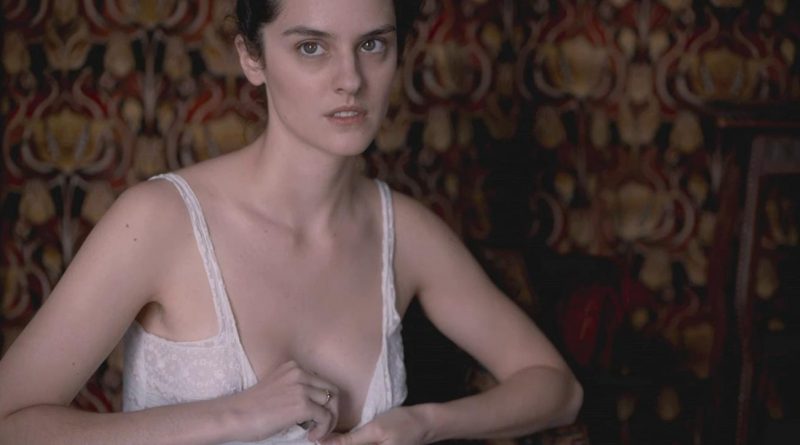
Lou Jeunet’s woefully off-target and ponderously slow French Curiosa aims for historical illumination, sex positivity, and strong feminist and feminine energy, and misses the mark in nearly every way. I’m all for sexy fun couched in a historically-influenced story, especially when it’s delivered in such a beautiful palette and accompanied by women so well appointed in costume, makeup and hair that they literally look like they just stepped out of a Marie Cassatt painting. What none of us should be up for is a story that ignores the most fascinating aspects of the real-life characters on which the film is based, in favor of a clumsily structured tale of supposed female empowerment.
Let me tell you about the people around whom this film is centered. Henri de Régnier was a French author who wrote a number of acclaimed books of poetry and a series of successful novels. He married Maria de Heredia, a highly regarded poetess and novelist, who often wrote under the nom du plume Gerard d’Houville. She had several lovers, women rumored among them, but had a long term affair with poet Pierre Louÿs. Louÿs was so celebrated that he was first made a Chevalier and then an Officer of the Légion d’honneur. A poet and writer renowned for lesbian themes, he became famous as the translator of a collection of erotic memoirs called Songs of Bilitis, in which he translated the 143 poems of a supposed Greek courtesan and comtemporary of Sappho. Not long after its publication and embrace by the French literary elite, imposter Louÿs revealed he had invented Bilitis and written all the poems himself. That revelation did nothing to tamp down his celebrity. In fact, his friend Claude Debussy adapted three poems from Songs of Bilitis for voice and piano. Louÿs was also a passionate early adopter of the camera, and one of the first amateur photographers developing his own film, thereby making possible his fascination with posing naked women alone and with men in various states of undress.
That’s where the film Curiosa abuts much of the above history, although little of the most fascinating aspects of any of these people is represented onscreen. The film follows Maria de Heredia (played by Noémie Merlant) in her journey of self discovery, both sexual and emotional, not as she navigates the literary world, but as she plays the muse for Louÿs (Niels Schneider) in his artistic exploration. She’s married to de Régnier only for convenience and financial protection. A lot of coy smiles and surreptitious glances lead to photos of de Heredia in increasingly scanty dress, until finally she is posing herself in pictures highlighting her heart-shaped bum. She’s an early star of those ‘French Postcards’ you’ve heard so much about. If she is choosing to be the center of sexual attention, if it is her choice, why then is she navigating so safely within the construct of a patriarchal power structure? If filmmaker Jeunet means to build a story around a world more accessible to women, as the modern electronica-infused score would suggest, why not extend that to the ways in which de Heredia breaks into a male-dominated literary world, or in how she chooses to express her sexuality without regard to how the men around her see her?
To read this review in its entirety, go to AWFJ.org HERE.



